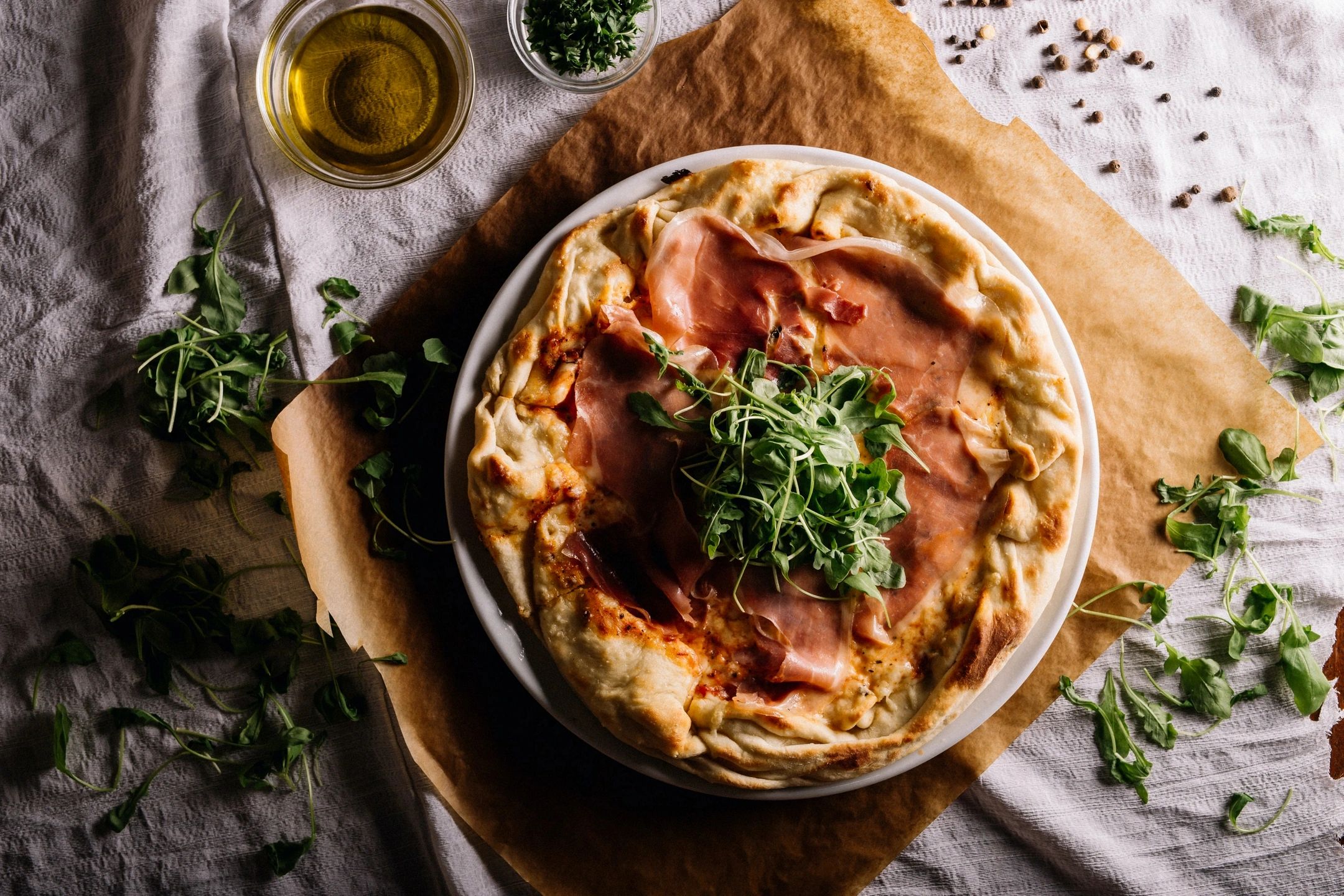Did you know that UK households create 7.2 million tonnes of food waste each year (that is £7.5 billion worth of wasted food) – 4.4 tonnes of that could have been eaten if stored and portioned correctly and 50% of food sent to landfill could be composted?
Food waste dumped on landfill sites produces methane which is 25 times more damaging to the environment than C02 and a major contributor to climate change.
Living lagom means taking a more intentional approach to food purchase and consumption – not only for our physical wellbeing but also for our environmental wellbeing.
Here are our top 5 tips for how we reduce our food waste.
1. Meal plan
The easiest way we find to avoid food waste is to plan our meals and shop for just what we need.
We sit down on a Thursday evening and decide what meals we want for the following week. We check what we already have in the fridge, freezer and store cupboard and then create a shopping list for any extra food that we need.
Having a meal plan and shopping list means that 99% of the time we stick to the list, avoiding buying extra food that we don’t need – reducing the spend and potential waste.
2. Shop local
Whilst we appreciate this won’t be an option for everyone, we like to shop with local independent retailers where we can. We shop at the local butcher for meat, grocer for veggies and our local refill store for dry goods such as pasta, rice, nuts and flour. Not only can we avoid plastic waste shopping this way (we take our own containers) but we can also buy just what we need – we aren’t restricted by pre-packaged portion sizes.
It does means shopping at 4 different places (when you add the supermarket for tinned goods etc) but we quite enjoy the experience. We’ve built good relationships with the people that work in these shops and it means that we get to enjoy the social experience of a Saturday morning chat alongside knowing we are doing our bit to reduce our waste.
If you don’t have access, time or energy to shop from independent retailers don’t worry – tips 1, 3 & 4 will still make a difference. Additionally, many supermarkets accommodate positive practices such as taking your own containers when buying from the meat, fish and deli counters, reducing food waste from pre-packaged portions and plastic waste from the packaging.
3. Bulk cook and left overs
Bulk cooking meals like stews, pies, soups and pasta sauces is a great way to use up extra portions of meat from pre-portioned packets or veggies that are going soft. It is also a good way to make workday meals quicker to prepare whether you have pre-packaged portions or not.
You can also cook ‘extra’ for your evening meals and have the left overs for lunch the next day. Pre-prepared lunches also help you make healthier and frankly more interesting choices than a sandwich, packet of crisps and a bottle of fizzy drink from the local supermarket.
Most bulk cooked meals will sit in the fridge for 4-5 days but if you aren’t keen on eating the same meal more than once in a week then portion it up and pop it in the freezer.
4. The freezer is your friend
You can freeze most food – food that perhaps you didn’t even realise like eggs, milk and cheese!
We use the freezer to keep cuts of fresh meat for later in the week or freeze portions of bulk cooked meals for the following week.
If you have bought too much to eat that week, freeze what you don’t need until you are ready to defrost and eat it.
We just take the frozen food out of the freezer in the morning to let it defrost through the day so that we can cook it (or re-heat it) in the evening.
You can also use the freezer to help shop cheaper. Look for items which have been reduced due to their sell by or use by date. Pop them straight in the freezer when you get home and you’ll usually have a month or more to keep them until you are ready to defrost and eat.
5. Compost
Whilst we aim to avoid food waste as much as we can, there will always be some waste – we are not yet at the point of eating/using the whole fruit or vegetable – we still have potato peels, orange peels and banana skins that we don’t eat. To avoid sending this waste to landfill we home compost.
Unfortunately, we don’t have a council collection for compost waste so we have two compost bins in the back garden and a compost caddy in the kitchen. When the kitchen caddy is full we just pot round to the compost bins and chuck it in. We’re not very scientific with the compost – we need to learn a bit more about how to manage it – and we don’t use much compost on our garden – but it is good to know that we aren’t sending waste to landfill and the food scraps are just decomposing back into the earth from where they came.
If you want to learn more about how to avoid food waste the love food hate waste website has some great ideas and recipes.
Do you have any more tips for avoiding food waste? Let us know in the comments below.
Want to know more about living lagom?
Take a look at our wellbeing pages, follow us on Facebook or Instagram, take a read of our other blog posts or feel free to reach out via our contact page.
